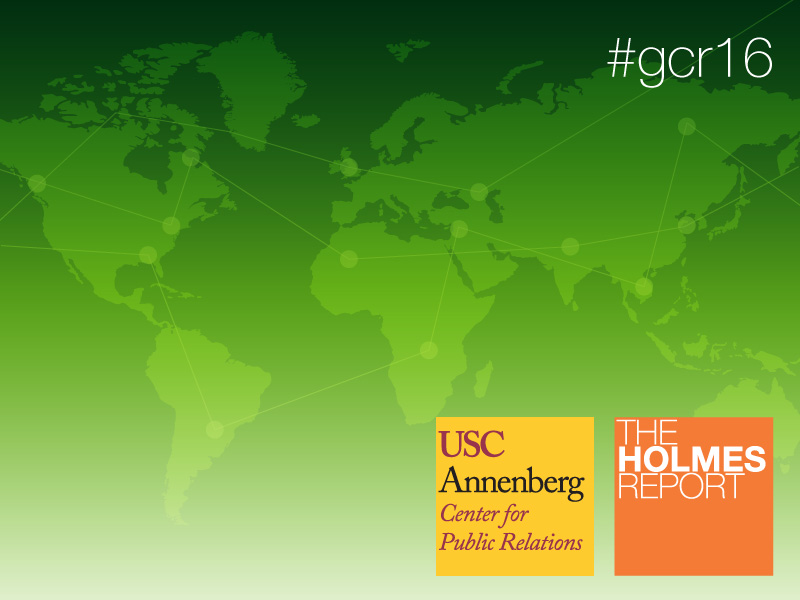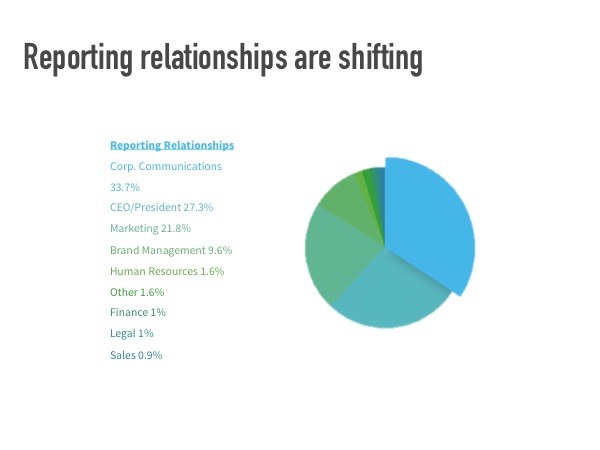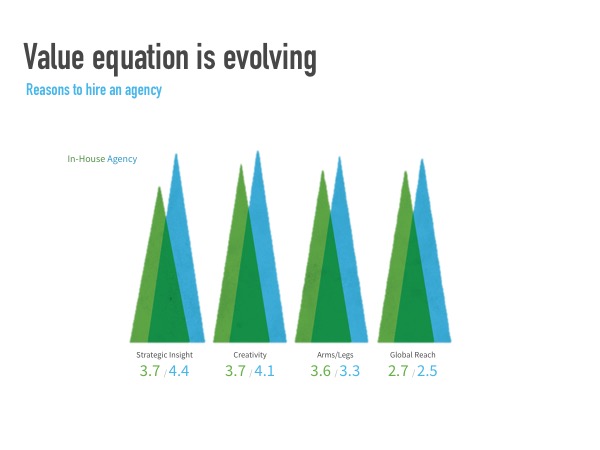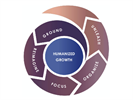Holmes Report 10 May 2016 // 8:11AM GMT

The overall relationship between communications directors and their PR agencies is expanding, but the nature of that relationship is changing, according to the inaugural Global Communications Report.
The Global Communications Report, a comprehensive worldwide survey of more than 1,000 senior public relations executives, led by the USC Annenberg Center for Public Relations in conjunction with the Holmes Report, has already revealed the scale of disruption affecting the PR industry, the need for new talent and skills, and how media channels are being used and measured differently.
The majority (55%) of client respondents expect their reliance on outside agencies to remain about the same over the next five years, while 31% expect to become more reliant, and just 14% expect to be less reliant. Meanwhile, PR agency leaders predict their share of their clients’ overall marketing budgets will increase by more than 20% over the next five years at the expense of other disciplines.
Only about one-in-five corporate respondents (21%) works with a single agency of record, while 33% maintain ongoing relationships with multiple agencies, and 23% assign projects on an ad hoc basis. Somewhat surprisingly, 23% of respondents say they do not work with agencies at all.

In what may be a major shift, furthermore, PR agency leaders report that today more than 30% of the time they are reporting into marketing (21.8%) or brand management (9.6%) versus corporate communications (33.7%).
Encouragingly, strategic and creative input is now more important than additional “arms and legs” when it comes to selecting agency partners.
Client-side respondents cited strategic insight as the single most important reason to bring in outside agencies (3.73 on a scale of 1 to 5), followed by creative thinking (3.67). By comparison, more prosaic concerns—the need for additional arms and legs (3.60) and expertise in media relations (3.28)—were less prominent. However, clients found less value in hiring outside agencies for their expertise in research and analysis (2.95) or measurement and evaluation (2.95).
By comparison, more prosaic concerns—the need for additional arms and legs (3.60) and expertise in media relations (3.28)—were less prominent. However, there was even less interest in hiring outside agencies for their expertise in research and analysis or measurement and evaluation (2.95).

When asked how satisfied they were with the way agencies are compensated, corporate respondents gave the current billing model a score of 59 out of 100, suggesting they are slightly satisfied. Agency leaders seem a little more satisfied at 62.
There is also a strategic focus when it comes to the ways in which clients believe agency relationships ought to be measured. Among clients, the most popular metrics focused on meeting pre-determined goals and objectives and strength of strategic counsel (4.05), quality of the creative product (3.85) and business results (3.75).
Similarly, agencies believe they are most valued for their strategic insights (4.38), with their expertise in specific practice areas (4.34) not far behind. But they are considerably more likely to believe that clients value their expertise in media relations (4.22) and their ability to bring an objective outside perspective (4.05) and considerably less likely to believe that they served as additional arms and legs (3.29).
There was less interest in evaluating agencies on either media results (3.44) or product sales (2.56)—and very little enthusiasm for the hourly billing model currently employed by most agencies (3.00).
Agency respondents’ views were similar. They believe that strategic counsel (4.44) should be the most important metric for determining compensation, followed by pre-determined objectives (4.42) and the overall health of the relationship (3.93), ahead of the quality of creative product (3.85) and business results (3.84).
Agencies were slightly more supportive of the hourly business model (3.31) but equally dismissive of media results (3.40) and sales results (2.99).
“It is encouraging to see the client/agency relationship shifting to one based more on strategy and creative,” said USC Center for Public Relations director Fred Cook. “It appears that it’s time to explore new compensation models based more on value delivered than hours spent.”


































.jpg)

















